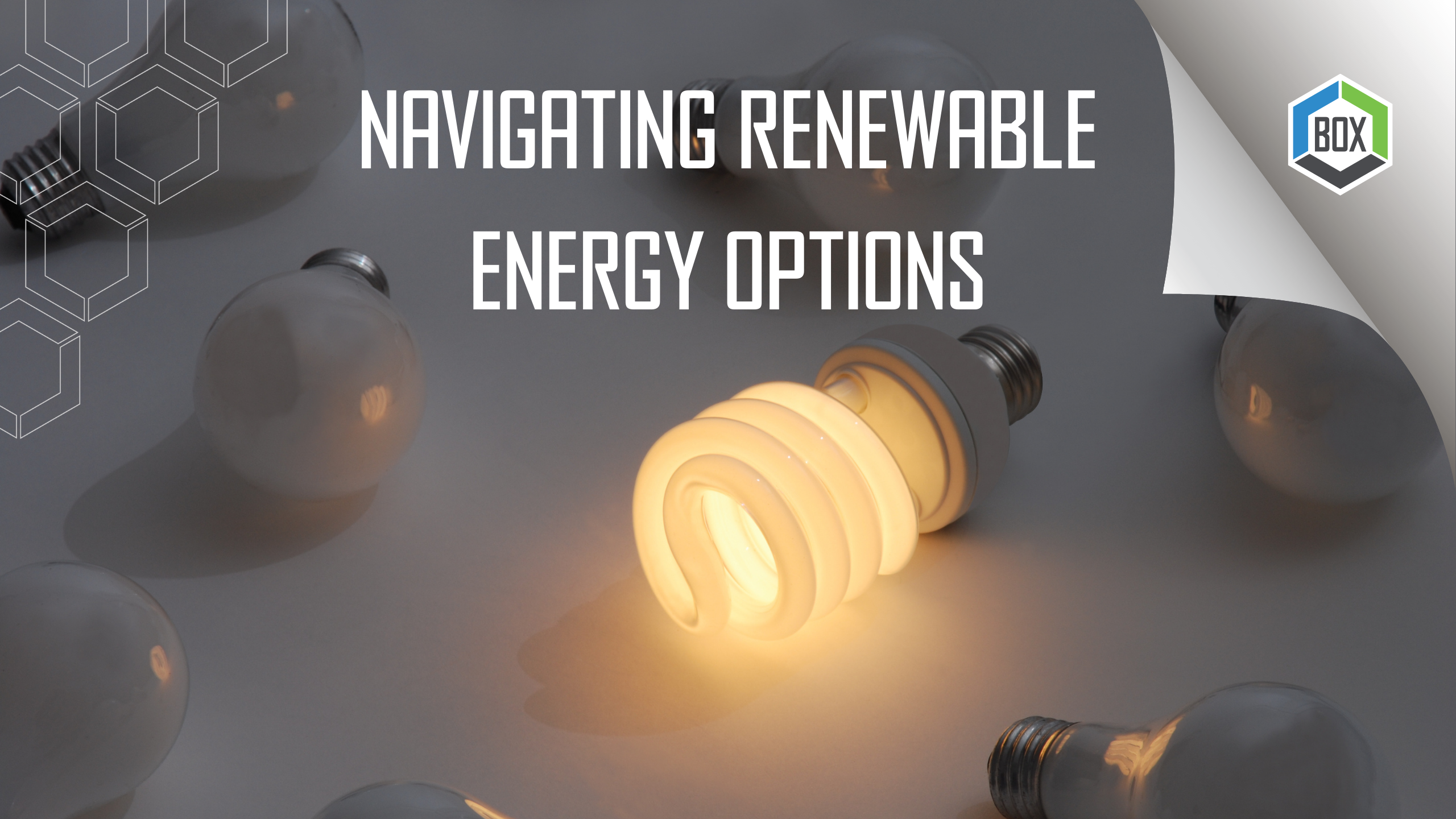A Guide For Commercial Clients
In recent years, there has been a global shift towards renewable energy as businesses increasingly prioritize sustainability and environmental responsibility. For commercial clients, navigating the myriad of renewable energy options can be daunting. From solar and wind power to hydroelectric and biomass, the choices can seem overwhelming. In this guide, we’ll explore the various renewable energy options available to commercial clients and provide insights to help navigate the decision-making process.
- Understanding Renewable Energy Sources:
– Solar Power: Solar panels convert sunlight into electricity, offering a clean and abundant source of renewable energy. Commercial clients can install solar photovoltaic (PV) systems on rooftops or open land to generate electricity for their operations.
– Wind Power: Wind turbines harness the kinetic energy of wind to generate electricity. Commercial clients can invest in on-site wind turbines or purchase wind energy from off-site wind farms through power purchase agreements (PPAs).
– Hydroelectric Power: Hydroelectric plants use flowing water to generate electricity, either through dams or run-of-river systems. While large-scale hydroelectric projects may not be feasible for all commercial clients, smaller-scale micro-hydro systems can be installed in suitable locations.
– Biomass Energy: Biomass refers to organic materials such as wood, agricultural residues, and municipal waste that can be converted into energy through processes like combustion, gasification, or anaerobic digestion. Commercial clients can utilize biomass boilers or cogeneration systems to produce heat and electricity from biomass feedstocks.
- Assessing Feasibility and Suitability:
– Before investing in renewable energy, commercial clients should conduct a feasibility assessment to determine the suitability of various options for their specific needs and circumstances.
– Factors to consider include available space, resource availability (e.g., sunlight, wind, water), regulatory requirements, financial incentives, and potential environmental impacts.
– Working with renewable energy consultants or energy brokers can help commercial clients assess feasibility, identify suitable technologies, and develop customized renewable energy solutions.
- Financing and Incentives:
– Financing renewable energy projects can be a significant barrier for commercial clients. However, there are various financing options available, including loans, leases, power purchase agreements (PPAs), and incentives such as tax credits, grants, and rebates.
– Commercial clients should explore available financing mechanisms and incentives to help offset the upfront costs of renewable energy investments and improve project economics.
- Integration and Grid Connectivity:
– Integrating renewable energy into existing infrastructure and grid connectivity is essential for commercial clients. Depending on the scale and type of renewable energy system, grid interconnection may require regulatory approvals and compliance with technical standards.
– Commercial clients should work closely with renewable energy developers, utility providers, and regulatory authorities to ensure seamless integration and compliance with grid connection requirements.
- Monitoring and Maintenance:
– Once renewable energy systems are installed, commercial clients should implement monitoring and maintenance practices to ensure optimal performance and longevity.
– Regular monitoring allows for early detection of potential issues and optimization of energy production, while routine maintenance helps prevent downtime and maximize return on investment.
Navigating renewable energy options can be complex, but with the right knowledge and guidance, commercial clients can make informed decisions to transition towards cleaner and more sustainable energy solutions. By understanding the various renewable energy sources, assessing feasibility, exploring financing options, integrating with existing infrastructure, and implementing monitoring and maintenance practices, commercial clients can unlock the benefits of renewable energy while contributing to a greener future. Investing in renewable energy is not only a strategic decision for commercial clients but also a critical step towards building a more sustainable and resilient economy.






